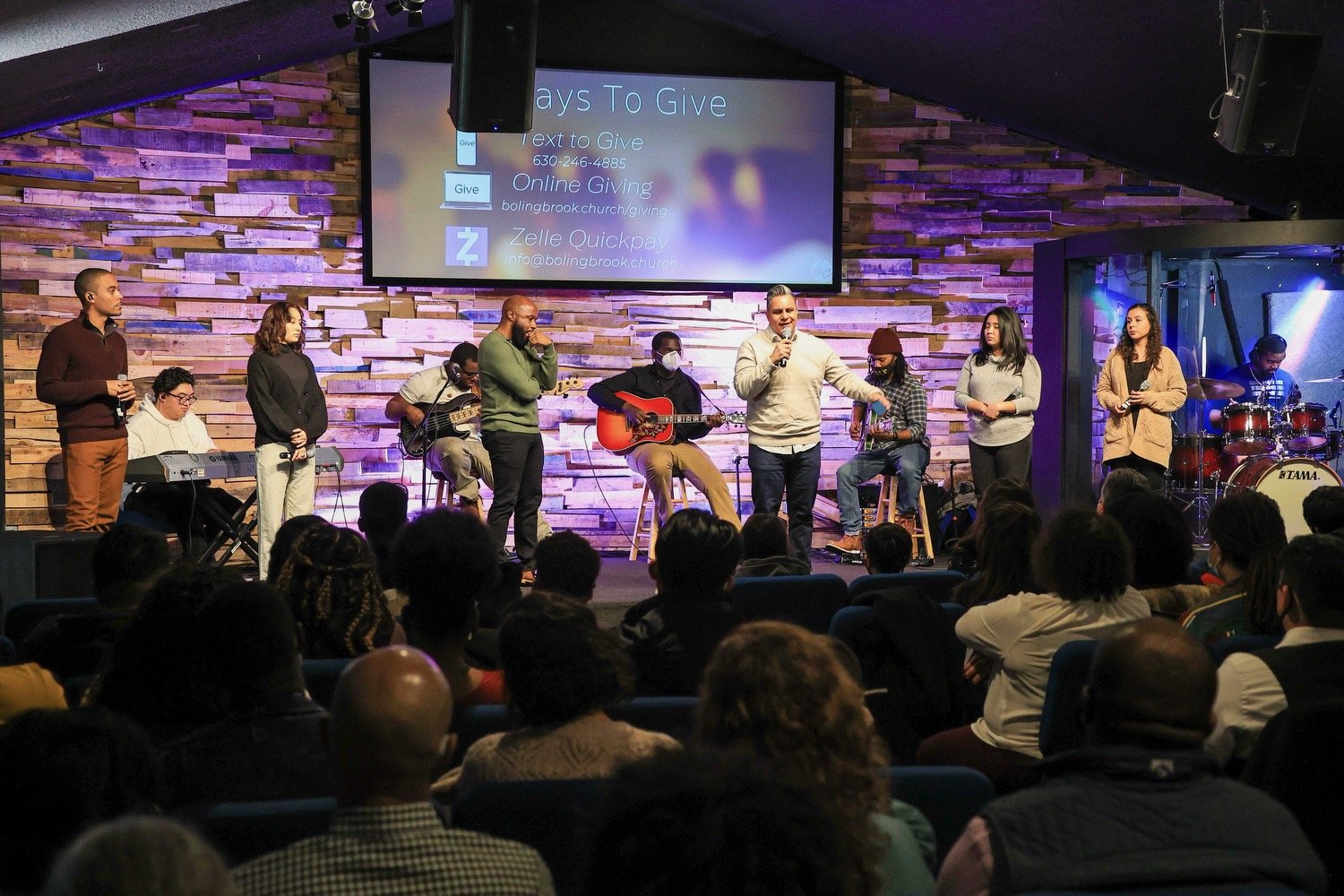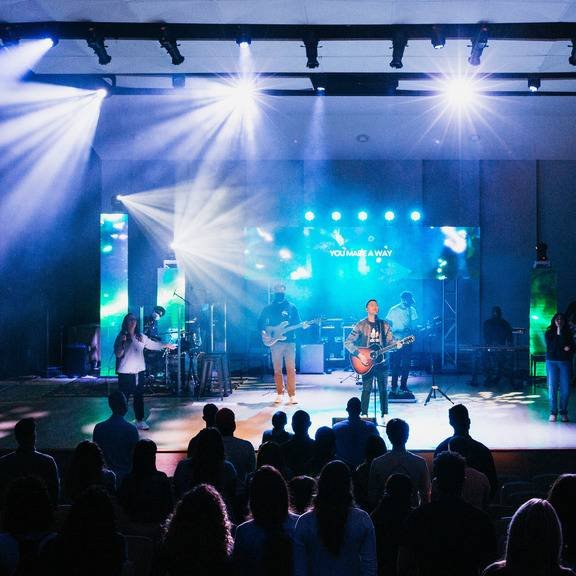
How can Adventist worship leaders organize worship services that sustain what we believe?
In anticipation of the Gospel-Centered Preaching Conference, October 27–28, 2025, Best Practices for Adventist Worship interviewed Ty Gibson, a featured speaker at the event, on the heart of gospel-centered preaching.
“I am not arguing that we avoid AI altogether, but I hope we will ask what we are trading for efficiency, and in particular, what opportunities to truly meet one another and God we may be missing in the rush to generate meaningful products and practices.”
“Art can express the beauty, mystery, truth, and love of God in unique ways that resonate with searching, broken people and draw their hearts closer to Him.”
“May we never shy away from the bold fragrance of devotion that arises when worship meets artistry—because in that meeting place, we catch a clearer glimpse of the God who formed us to create and to love Him in every color, sound, and language.”
“The only response that feels sane when we encounter the story of the gospel or the way God wants to recreate His Kingdom here is to create for ourselves, however imperfectly.”
Whether your congregation will have multiple gatherings or a single gathering, here are some ways we can embody a fuller story of Jesus’ dying and rising in our worship practices.
“The story in and of Psalm 22 is a powerful testimony to the importance of using a variety of music (and arts in general) to hold space for different human experiences in their relationship with the divine—the pretty and the ugly, the hopeful and the desperate, the song of praise and the song of despair. All to God, and (note!) all to the congregation!”
“Is it possible to escape the disenchanted and detached world of modernity without wandering after illusions in the desert? Can we find our way home to a place of divine dwelling? What images might orient the people of God in the shifting sands of contemporary culture? And how might these images inform Christian worship, whose task is to shape our imaginations toward God and His world?”
“On a practical level, the Sabbath offers us the chance to recalibrate our attention—shifting it from the noise of daily life to the things that matter most. This shift doesn’t happen automatically; it requires intentional practices that help us learn to focus.”
"I realized that as the lead pastor, I'm uniquely positioned to create the climate I desire— a climate of collaboration. My worship leader can request it, but I can make it happen."
Hymns have been an integral part of worship for centuries. Their enduring melodies and profound lyrics make them ideal for adaptation across a variety of musical styles. Here are five hymns that are easily adaptable, along with examples of how different artists have reimagined them.
"While the Bible does not explicitly use a window as a metaphor for worship, the connection between worship and transformed vision is pervasive. In addition to other metaphors for worship—e.g., worship as a sacrifice (Romans 12:1) or worship as a banquet/feast (Revelation 19:9)—I’d suggest that thinking of worship as a window can illuminate and clarify how we approach worship ministry."
“Rather than considering art as additional or supplemental to our worship as Christians, it invites our contemplation of the profound essential nature of art in our daily worship and liturgical gatherings.”
While content may be king in many realms, in worship, the priority is communion and connection with God and fellow worshipers. Here are several ways to foster community during worship gatherings.
“Isaiah’s vision of heavenly worship, however, reminds us that ultimately the ‘vertical’ and ‘horizontal’ dimensions of worship are inextricably bound together. Just as the seraphim “were calling out to one another,” we glorify God not only through praise directed toward God but also as we exhort, encourage, and bless one another.”
“The most important thing I have done to lead with resilience and maintain a healthy well-being is to create a Rule of Life for myself. A Rule of Life is the practices and rhythms you want to include in your daily life that will help you remain close to God, dedicated to your calling, and committed to your most important relationships. It might be helpful to think of a rule of life as a trellis that supports you in staying committed to the things that are most important to you.”
“One of the most important strategies is clear and consistent communication. We spent a healthy amount of time fleshing out our church mission, vision, and values. These have helped us clearly communicate what our purpose is as a church. These also guide everything we do when it comes to starting and/or supporting different ministries.”
“It is essential that we don’t just make changes as a leadership team, but that the congregation is not only aware of what we're doing but also why we're doing it so we can all contribute and work together.”
Worship Pastor, Vanessa Hairston, shares song suggestions for building a Gospel-packed worship set list.
“New Hope had already been streaming their services for many years. But the pandemic led to a more intentional approach to improving the online experience.”
“Most people come to worship acknowledging their failures over the past week. Good advice or calls for more effort won't change their condition, but an encounter with Christ through the proclamation of the Gospel can be transformative.”
“Similarly, when we break bread and share it with those in need—which is all of us in different ways—when we kneel and stand and celebrate and sing and serve, the bread becomes a gift, a transformative symbol, and we become the Body of Christ.”
“Like a woman bearing her unborn child, these leaders carry congregations through the pain, struggle, and uncertainty that mark transitions to the possibility of new life beyond.”
“I've told members of my church family that if you don't like a particular song, look around and see who does and pray, ‘Lord, thank You that this music is reaching them.’”
“If sports can unite strangers, why does something of infinitely more importance—worshiping God—so often divide us?”
“Worshiping an implicitly absent, distant God of “control” maligns God’s character and encourages our continued absence from God, one another, and those in need.”
“While good advice is valuable, it's the Good News that has the power to change lives and, indeed, the world.”
“If you are only leading your congregation to change, then you are going to be myopically focused on the obstacles that are presented by to church. But if you see yourself as a change agent for your community—if you recognize that you are called to lead that community—then you begin to perceive both the real opposition and incredible opportunities for transformation.”
“In the midst of a transformational phase at Andrews University, we acknowledge that numerous churches are likewise navigating their unique transitions. These changes often present both challenges and opportunities in leadership and cultural adjustments. As we collectively ponder the question, "How do we lead through change?" it's crucial to ground ourselves in one constant—Jesus Christ.”






























